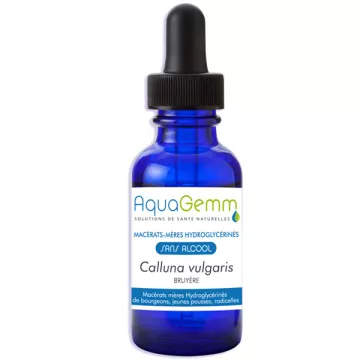








What is cystitis and how does it manifest itself?
Cystitis is a urinary infection that mainly affects the bladder. It is characterized by a number of symptoms, including a frequent urge to urinate, a burning sensation when urinating and pain in the lower abdomen. In some cases, the urine may be darker in color or have an unusual odor, and blood may be present. This condition is more common in women, due to their urogenital anatomy.
What are the main causes of cystitis?
Cystitis is often caused by the penetration of bacteria, mainly Escherichia coli, through the urethra to the bladder. These bacteria may come from the intestinal flora or from the perianal area. Risk factors include sexual intercourse, certain health conditions that impede complete bladder emptying, the use of irritating hygiene products and hormonal changes.
How can cystitis be prevented?
To prevent cystitis, we recommend drinking plenty of water to help eliminate bacteria from the urinary system. Frequent urination is also recommended, especially after sexual intercourse, to expel potentially harmful bacteria. Personal hygiene is crucial: in particular, avoid perfumed or irritating products in the genital area. Wearing cotton underwear and non-restrictive clothing can also help reduce the risk.
What treatments are available for cystitis?
Treatment of cystitis depends on the severity of symptoms. For mild cases, an increase in water intake may be enough to resolve the infection. For more severe symptoms, specific antibiotics may be prescribed by a healthcare professional, such as nitrofurantoin or trimethoprim. It is essential to follow the full course of treatment to ensure elimination of the infection. Analgesics may also be recommended to relieve pain.
Can cystitis recur, and how can recurrences be managed?
Yes, cystitis can recur, especially in women who have already experienced it several times. To manage recurrences, it's important to follow the preventive advice mentioned above. In the event of frequent recurrence, prophylactic treatment with low-dose antibiotics may be considered under the supervision of a physician. It is also beneficial to consult a specialist to assess other possible underlying causes or anatomical anomalies.
What is the link between cystitis and pregnancy?
During pregnancy, hormonal changes and the increased size of the uterus can put pressure on the bladder, resulting in urine stagnation and an increased risk of cystitis. What's more, as the immune system of the pregnant woman is altered, she is more susceptible to infections. It's crucial for pregnant women to follow strict preventive measures and consult a healthcare professional at the slightest symptom of cystitis to avoid complications such as pyelonephritis.
Can natural remedies be used to treat cystitis?
Some natural remedies can be used to relieve the symptoms of cystitis, such as drinking cranberry juice or using probiotics, which can help restore a healthy bacterial flora and prevent the colonization of the urinary tract by pathogenic bacteria. However, it's important to note that these remedies do not replace prescribed medical treatment for confirmed infection, and should be discussed with a healthcare professional.
How can cystitis be distinguished from other types of urinary tract infection?
Cystitis is a specific form of urinary infection that primarily affects the bladder. It differs from pyelonephritis, a more serious infection affecting the kidneys, in that its symptoms are less severe. While cystitis mainly causes irritation and inflammation of the bladder, pyelonephritis can include symptoms such as high fevers, chills, back or side pain, indicating a deeper infection. A precise medical diagnosis is necessary to determine the type and severity of the infection.
Is interstitial cystitis the same as bacterial cystitis?
No, interstitial cystitis, also known as painful bladder syndrome, is a chronic condition manifested by pain and pressure in the bladder and pelvis, often without the presence of bacterial infection. Symptoms resemble those of bacterial cystitis, but last much longer and do not respond to antibiotics. Treatment of interstitial cystitis is more complex and may include dietary changes, medication and sometimes surgery.
When should a doctor be consulted about cystitis?
It is advisable to consult a healthcare professional at the first signs of cystitis, such as pain on urination, frequent urgency to urinate, or the presence of blood in the urine. It's especially important to seek prompt medical attention if symptoms are accompanied by fever or back pain, or if the sufferer is pregnant, elderly, or has medical conditions that could complicate cystitis. Prompt treatment is crucial to avoid complications and ensure a full recovery.